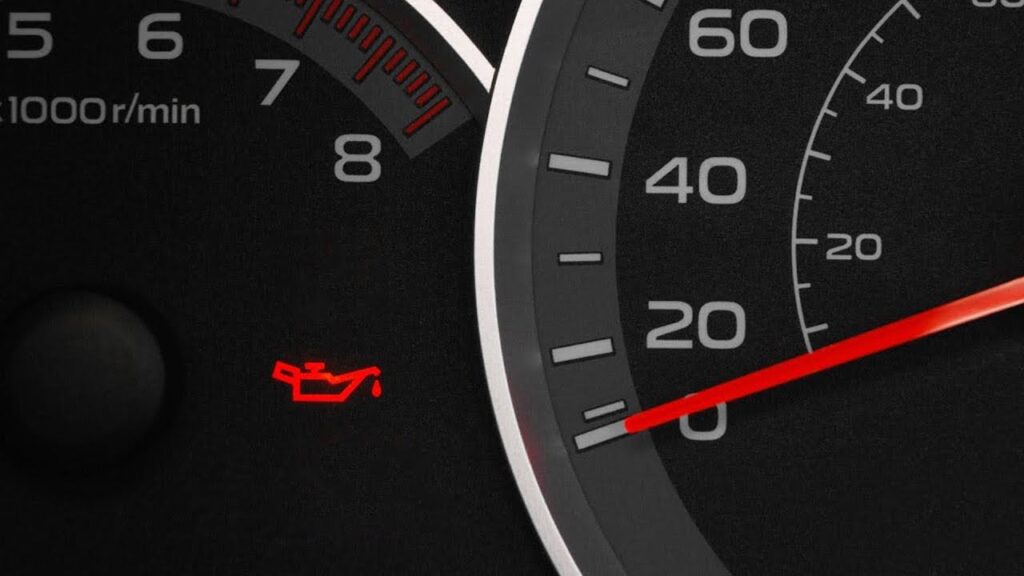

Maximizing Engine Efficiency: Unveiling the Expertise Behind Check Engine Light Service by Specialized Technicians
In the ever-evolving landscape of automotive technology, ensuring the optimal performance of your vehicle’s engine is paramount. One crucial aspect that demands meticulous attention is the check Engine Light Services. Specialized technicians play a pivotal role in deciphering and rectifying issues flagged by this indicator, ensuring your vehicle operates at its peak efficiency. Let’s delve into the intricacies of this indispensable service, unravelling the expertise that sets it apart.
Ensuring You the Best Quality Services:
Ensuring you the best quality services, Elite Auto Repair commits to delivering top-notch expertise, transparent communication, and competitive pricing. Our dedication lies in providing unparalleled services for your vehicle’s optimal performance. Look at the following options:
- Preventative service
- Domestic Service
- Factory Service

Why Choose Us?
Elite Auto Repair is your optimal choice for comprehensive vehicle support. Explore the following options to experience top-notch service and care for your vehicle:
- Drive with Confidence
- Customer Satisfaction Guaranteed
- Don’t Settle for less
- Affordable and Reliable
- Get Back on the Road
- Experience You Can Trust
- Expertise and Quality Service
- We Put Your Car First
- Choose Elite Auto Repair
- No More Engine Woes
The Specialized Technician Advantage
The Specialized Technician Advantage lies in their unparalleled expertise in engine diagnostics. With a deep understanding of intricate engine systems, these technicians employ state-of-the-art diagnostic tools, surpassing conventional scanners. They not only address immediate issues signaled by the Check Engine Light but conduct a comprehensive engine health assessment, offering proactive solutions. This customer-centric approach, marked by transparent communication and tailored solutions, distinguishes them as leaders in ensuring optimal engine performance.
1-Unparalleled Expertise in Engine Diagnostics
Unlike generic auto repair services, specialized technicians bring a wealth of knowledge and expertise to the table. Their in-depth understanding of engine intricacies enables them to navigate the complex web of DTCs with precision, expediting the diagnostic process.
2-State-of-the-Art Diagnostic Tools
Specialized technicians leverage cutting-edge diagnostic tools, transcending conventional scanners. These advanced tools delve deeper into the vehicle’s onboard computer, extracting comprehensive data for a more accurate diagnosis. This commitment to technological innovation sets them apart in the realm of engine diagnostics.
Comprehensive Engine Health Assessment
A comprehensive Engine Health Assessment involves a thorough evaluation beyond immediate issues highlighted by the Check Engine Light. Specialized technicians employ diagnostic expertise to identify potential concerns before they escalate. This proactive approach ensures not only swift issue resolution but also prevents future complications. Fine-tuning the engine for optimal performance is integral, involving adjustments to fuel-to-air ratios, ignition timing, and component calibration.
1-Beyond the Check Engine Light: Proactive Maintenance
While addressing immediate concerns flagged by the Check Engine Light, specialized technicians go above and beyond. They conduct a comprehensive engine health assessment, identifying potential issues before they escalate. This proactive approach not only ensures immediate problem resolution but also prevents future complications.
2-Fine-Tuning for Optimal Performance
Specialized technicians possess the finesse to not only rectify issues but also fine-tune the engine for optimal performance. This includes adjusting fuel-to-air ratios, optimizing ignition timing, and calibrating engine components to harmonize seamlessly.
Customer-Centric Approach
The Customer-Centric Approach of specialized technicians prioritizes transparent communication with clients about diagnosed issues and recommended actions. This fosters trust and satisfaction by keeping customers well-informed throughout the service process. Tailoring solutions to the unique needs of each vehicle further enhances this approach, providing bespoke and effective resolutions. This commitment to personalized service establishes specialized technicians as leaders in customer satisfaction.
1-Transparent Communication
In the realm of engine diagnostics, communication is key. Specialized technicians prioritize transparent communication, ensuring clients are well-informed about the diagnosed issues and the recommended course of action. This customer-centric approach fosters trust and satisfaction.
2-Tailored Solutions
Every vehicle is unique, and so are its needs. Specialized technicians recognize this diversity, providing tailored solutions that address the specific requirements of each vehicle. This bespoke approach resonates with clients, establishing the service as a benchmark in customer satisfaction.
The Road of Engine Optimization
The Check Engine Light Service by specialized technicians transcends the conventional notion of engine diagnostics. It embodies a commitment to precision, technological prowess, and customer satisfaction. By entrusting your vehicle to these experts, you not only ensure immediate issue resolution but also embark on the road to sustained engine optimization.
Understanding the Significance of the Check Engine Light
The check Engine Light (CEL) serves as a sentinel, alerting drivers to potential issues within the vehicle’s engine system. While many may perceive it as a mere nuisance, ignoring its warnings can lead to severe consequences, including compromised fuel efficiency and increased emissions.
1-What is the Check Engine Light?
The check engine light, also known as the malfunction indicator lamp (MIL), is a dashboard warning that illuminates when your vehicle’s onboard computer system detects a potential issue. Contrary to common misconception, the light doesn’t always indicate a major problem, but it’s a crucial signal to investigate further.
2-Importance of Prompt Attention
Ignoring the check engine light can lead to more significant and costly problems down the road. Addressing the issue promptly not only ensures your vehicle’s optimal performance but also prevents potential damage to critical components.
Common Reasons for Check Engine Light Activation
The check Engine Light illuminates due to various issues, often signaling a malfunction in the vehicle’s systems. Common triggers include faulty oxygen sensors, lose or damaged gas caps, and problems with the mass airflow sensor. Understanding these reasons is crucial for effective diagnosis and prompt resolution.
1-Faulty Oxygen Sensor
A malfunctioning oxygen sensor is one of the most common triggers for the check engine light. This sensor monitors the level of oxygen in the exhaust gases and helps optimize fuel efficiency. A timely replacement can improve your vehicle’s gas mileage.
2-Loose or Damaged Gas Cap
A loose or damaged gas cap can lead to fuel vapors escaping from the tank, triggering the check engine light. Ensuring a tight seal can resolve this issue and prevent unnecessary alarms.
3-Issues with the Mass Airflow Sensor
The mass airflow sensor measures the amount of air entering the engine and plays a crucial role in determining the fuel injection needed. Malfunctions can result in reduced fuel efficiency and performance issues.
4-Spark Plug or Ignition Coil Problems
Worn-out spark plugs or faulty ignition coils can lead to misfires and trigger the check engine light. Regular maintenance and timely replacements can enhance your vehicle’s overall reliability.
DIY Check Engine Light Diagnostics
DIY Check Engine Light Diagnostics empowers car owners to perform basic assessments using an OBD-II scanner, providing valuable insights into specific issues. Additionally, checking for loose wires through a visual inspection aids in identifying potential triggers for the warning light. This section guides you through cost-effective measures for preliminary diagnosis and understanding your vehicle’s health.
1-Using OBD-II Scanner
Investing in an OBD-II scanner empowers you to perform basic diagnostics on your vehicle. This portable device plugs into your car’s OBD-II port, providing valuable insights into the specific issue triggering the check engine light.
2-Decoding Diagnostic Trouble Codes (DTCs)
When the Check Engine Light illuminates, it signifies the detection of Diagnostic Trouble Codes (DTCs). Specialized technicians possess the acumen to interpret these codes, embarking on a meticulous diagnostic process to pinpoint the root cause of the issue.
3-Checking for Loose Wires
Inspecting your vehicle for loose or damaged wires is a crucial step in DIY diagnostics. A visual examination under the hood and around the engine area can reveal potential issues that may contribute to the check engine light activation.
OUR LOCATIONS
When you bring your Car to one of our four locations in Florida whether it’s Delray Beach, Boca Raton, Singer Island or Port St. Lucie, you can trust that our skilled technicians will treat your car with the utmost care and attention to detail.
delray beach
445 NE 6th AVE, STE 23, Delray Beach, Florida 33483, USA
Boca Raton
4756 NW Boca Raton Blvd, STE B2, Boca Raton, Florida 33431 USA
Singer Island
1260 Plaza Cir, West Palm Beach, Florida 33404 USA
Port St. Lucie
1648 SW Biltmore Street Port St. Lucie, Florida 34984 USA
Frequently Asked Questions
When the Check Engine Light is flashing, it typically indicates a severe issue with the vehicle’s engine that requires immediate attention. It is advisable to stop driving, as continued operation may cause further damage. You should promptly seek professional assistance to diagnose and address the underlying problem.
You can drive with the Check Engine Light on for a short distance, but it’s crucial to address the issue as soon as possible. Continuing to drive with the light illuminated may lead to more significant problems and potential damage to your vehicle. It’s advisable to have your vehicle inspected by a professional to identify and resolve the underlying issue at your earliest convenience.
Yes, if you have a loose gas cap, it can indeed trigger the Check Engine Light. The gas cap plays a crucial role in maintaining the proper pressure in the fuel system. When it’s loose or not sealed correctly, it can lead to an evaporation system leak, causing the Check Engine Light to illuminate. Tightening or properly securing the gas cap is a simple solution to resolve this issue in many cases. If the light persists, it’s advisable to have your vehicle inspected for potential additional problems.
Yes, there are mobile apps available that can help diagnose Check Engine Light issues. These apps typically use a compatible OBD-II (On-Board Diagnostics) scanner to read and interpret the codes generated by your vehicle’s onboard computer. By connecting the scanner to your car’s OBD-II port and using the app, you can retrieve diagnostic trouble codes (DTCs) and get information about potential issues. Keep in mind that while these apps can provide valuable insights, they may not offer a comprehensive analysis, and it’s advisable to consult with a professional mechanic for a thorough diagnosis and appropriate solutions.
If the Check Engine Light turns off on its own, it could mean that the issue was temporary or resolved. However, it’s still advisable to have your vehicle checked by a professional. Some problems may not trigger the light immediately but can still affect the performance or efficiency of your vehicle. A mechanic can use diagnostic tools to check for any stored error codes and assess the overall health of your vehicle, providing assurance that everything is in proper working order.
Ignoring the Check Engine Light is risky. Even if your vehicle appears to run smoothly, the light signals potential issues that can worsen over time. Timely intervention ensures long-term reliability. It is advisable to have your vehicle inspected by a professional as soon as possible to identify and address the underlying issue, ensuring the continued proper functioning of your vehicle.
Understanding the severity of Check Engine Light indications can be challenging. Look out for specific patterns and sounds, and consult your vehicle manual for guidance.
Regular vehicle check-ups are essential. Set a schedule for routine inspections, including fluid levels, belts, and hoses, to catch potential problems early.
Yes, a weak or dead battery can trigger the Check Engine Light. Regularly check your battery’s condition and replace it if necessary.
In such cases, consult a professional mechanic to conduct a thorough diagnostic check and address any underlying concerns.



